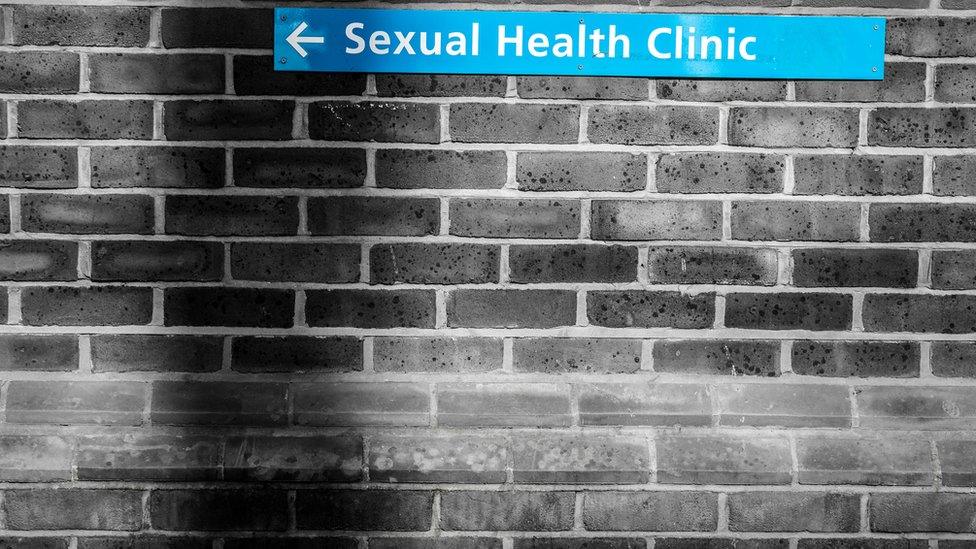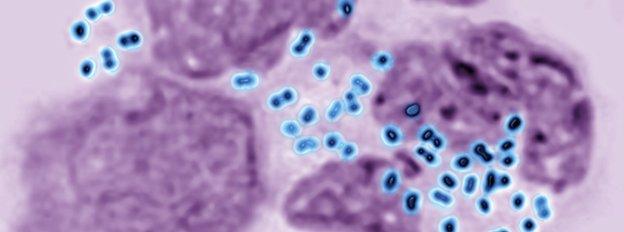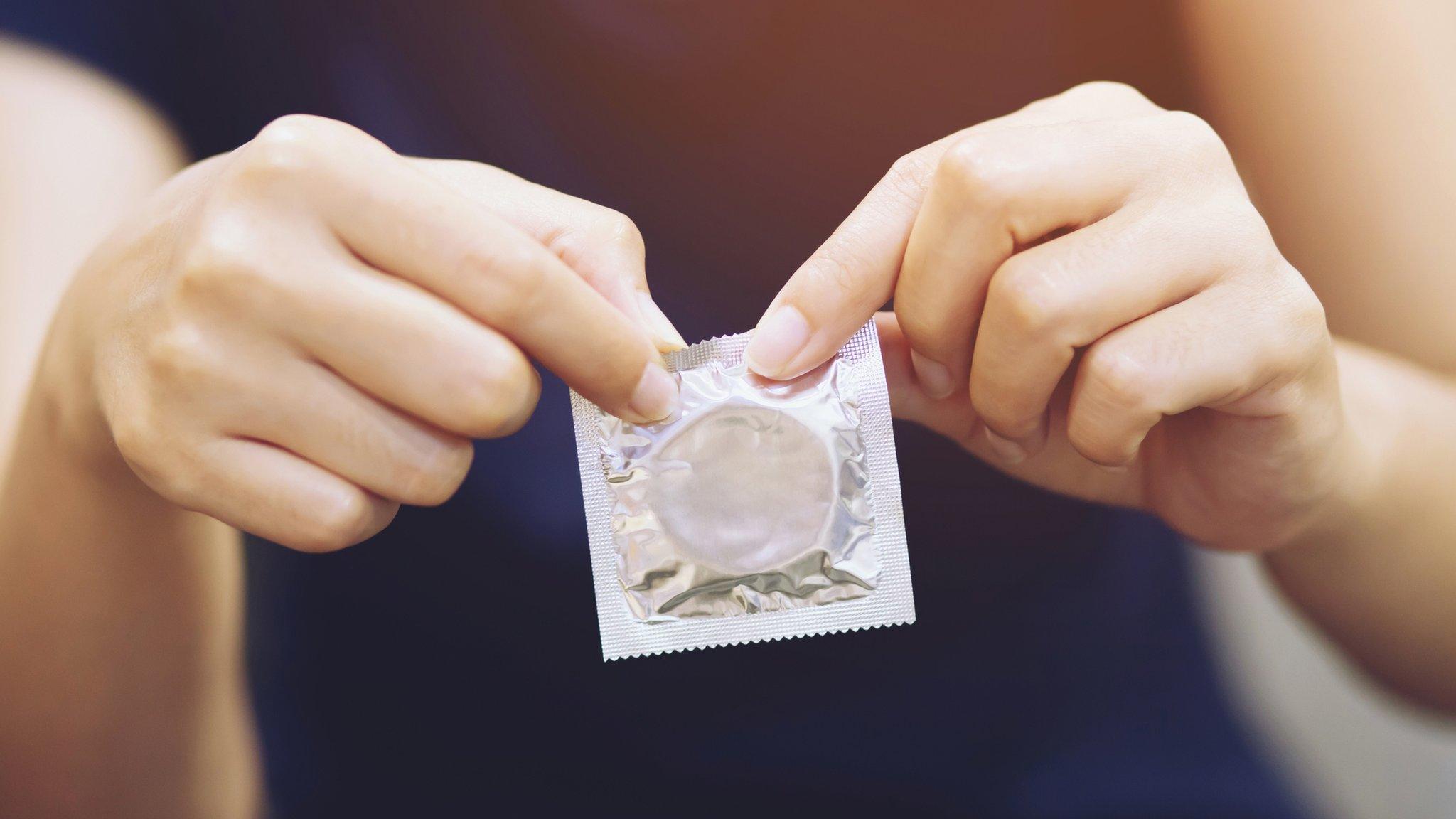Sexual health: Gonorrhoea cases in Northern Ireland highest on record
- Published

The number of people in Northern Ireland diagnosed with gonorrhoea in 2018 was the highest on record.
New diagnoses of the sexually transmitted disease rose 30% to 882 in 2018 - a trend that the Public Health Agency (PHA) said was "particularly concerning".
Eighty per cent of those diagnosed were men and a high proportion of those were men who had sex with men (MSM).
There is also a smaller upwards trend in the disease among heterosexuals.
Men and women aged 20-24 had the most new diagnoses.
The 30% increase is likely to be partly due to a rise in the number of gay men going for screening, the PHA said.
But doctors are concerned at the risks posed by rising levels of resistance to antibiotics.
"There is a real risk that antibiotic options will become less effective in the future," said Dr Claire Neill, specialist registrar, PHA.
"It's really important that we take steps to protect ourselves from becoming infected in the first place and reduce the potential for spreading gonorrhoea by wearing condoms."
If untreated, gonorrhoea can lead to infertility, pelvic inflammatory disease and can be passed on to a child during pregnancy.
The latest sexual health figures from the PHA also show:
Diagnoses of chlamydia increased by 6%, with 1,787 diagnoses in 2018
Diagnoses of genital herpes increased by 8%, with 501 in 2018
Diagnoses of genital warts (first episode) decreased by 10% to 1,436 in 2018
Diagnoses of syphilis increased by 72%, with 86 in 2018

What is gonorrhoea?

The disease is caused by the bacterium, Neisseria gonorrhoeae.
The infection is spread by unprotected vaginal, oral and anal sex.
Sufferers can have no easily recognisable symptoms, but these can include a thick green or yellow discharge from sexual organs, pain when urinating and bleeding between periods.
Untreated infection can lead to infertility, pelvic inflammatory disease and can be passed on to a child during pregnancy.
Until this year, there were two types of antibiotics, given together, that were used in the treatment of gonorrhoea.

'Super-gonorrhoea'
The bacterium Neisseria gonorrhoea has historically developed resistance to new antibiotics.
Like elsewhere in the United Kingdom and Europe, the PHA said it was seeing cases that have shown resistance to one of the two antibiotics.
There have been growing levels of what has become known as super-gonorrhoea - where the infection was incurable with first choice antibiotics - around the world with similar cases reported in Japan, Canada and Australia.
In April 2018, a man in the UK, who caught the world's "worst-ever" case of super-gonorrhoea, was cured.
He picked up the superbug having sex with a woman in South East Asia.
Treatment guidance in the UK has now changed and cases are treated with the antibiotic that is shown to still be effective for all cases.
Protection
The PHA said that, to date, there have been no cases of gonorrhoea in Northern Ireland resistant to the recommended first-line antibiotic.
"Over time this is likely to change, so it's really important that we take steps to protect ourselves from becoming infected in the first place and reduce the potential for spreading gonorrhoea by wearing condoms and availing of regular screening," a PHA spokeswoman said.
Dr Neill said those with sexually transmitted infections do not always have symptoms.
"By having unprotected sex, you could effectively be sleeping with everyone your partner's ever slept with, putting yourself at risk of getting an STI," she said.
"Therefore, we are urging people to always use a condom.
"It is also important to take steps to reduce the risk of harm to yourself and others if there's a chance you have contracted an STI. There are GUM clinics across Northern Ireland, so if you are at risk, make sure you attend one of these clinics to get checked out for free."
"If you have put yourself at risk, and even if you don't have any symptoms, it's important that you get yourself tested."
Information on looking after your sexual health, symptoms of STIs and details of Northern Ireland GUM clinics can be found at www.sexualhealthni.info, external.
- Published9 January 2019

- Published28 March 2018

- Published15 February 2019
